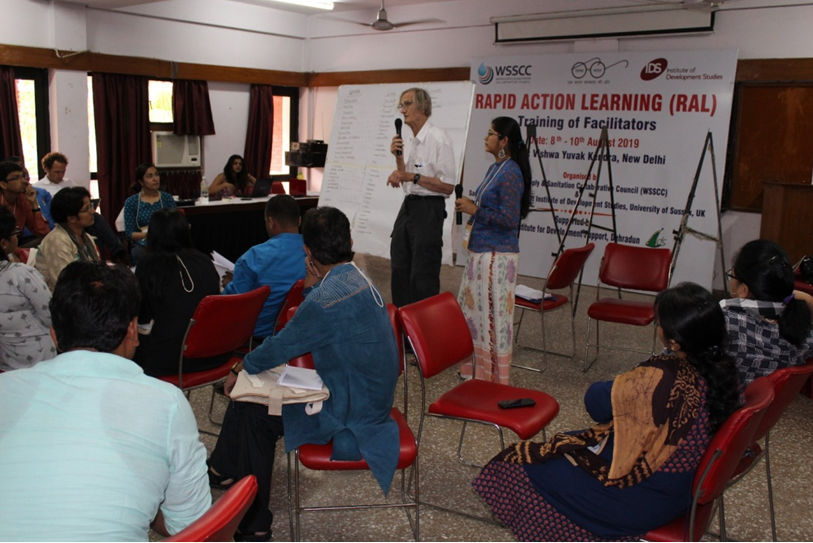Project-5: Provision of Conducting Rapid Action Learning Workshopss (RAL- National and State level) under Jal Jeevan Mission (Rural Water Supply Program)

The RAL workshop intends to harvest learning from on-going practice and innovations on the ground under Jal Jeevan Mission (JJM) and make it available to a wide range of practitioners for their wider dissemination, application and replication across different states and districts. The process has been designed to encourage and enable government practitioners to identify their good practices, innovations and lessons learnt and to share these horizontally peer-to-peer and between levels, drawing practical lessons from each other across districts/states. To identify successful practices and using methods of rapid sharing, learning, adopting and adapting of these for local needs and conditions will be the key to achieving the goals of JJM. With this in mind IDS with support fom UNOPS (United Nations Office for project Services) is convening and organizing state workshops in Rajasthan, Assam, UP and Tamil Nadu. It will bring districts of the concerned state together (all with different levels of success) to share and learn insights, innovations and successful practices for changing behaviors and establishing and sustaining JJM to reach out to more and more families for FHTC.
